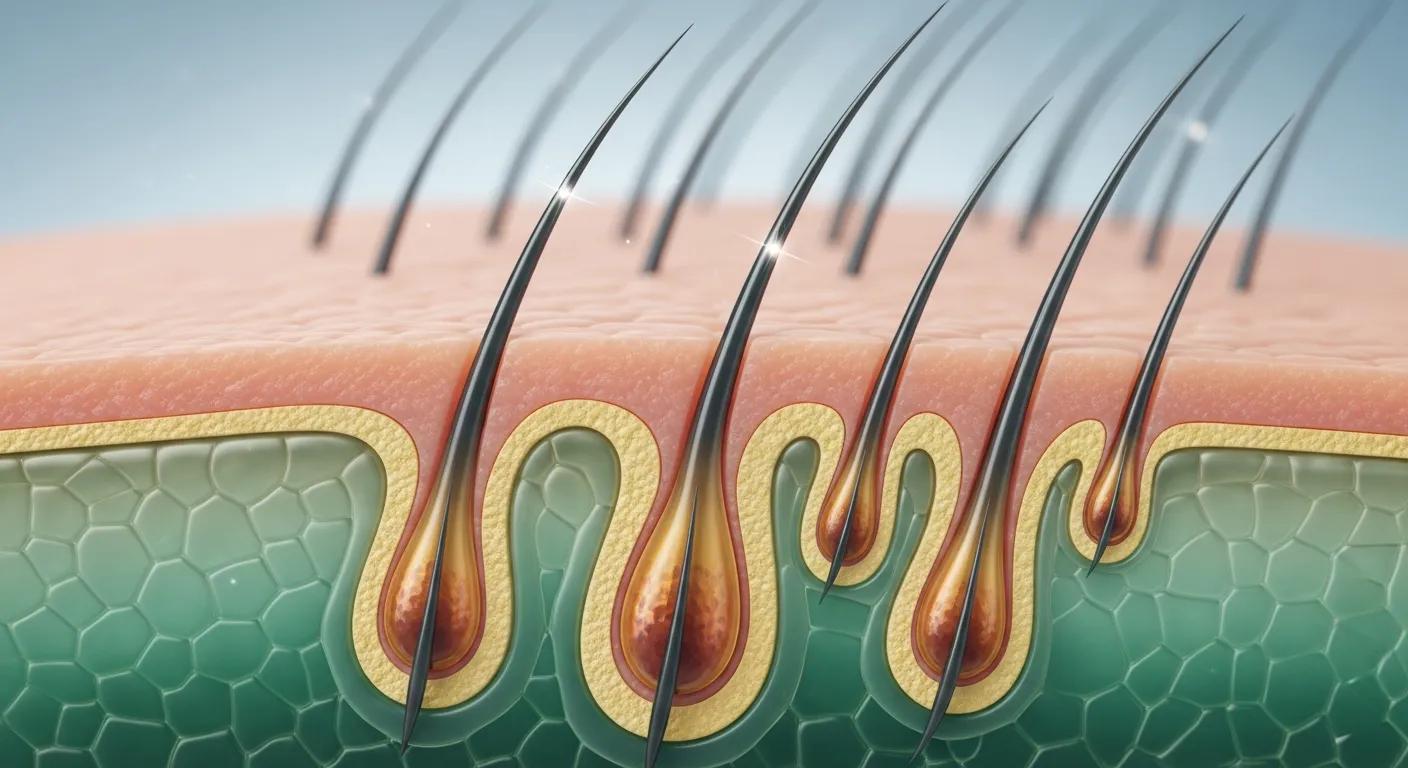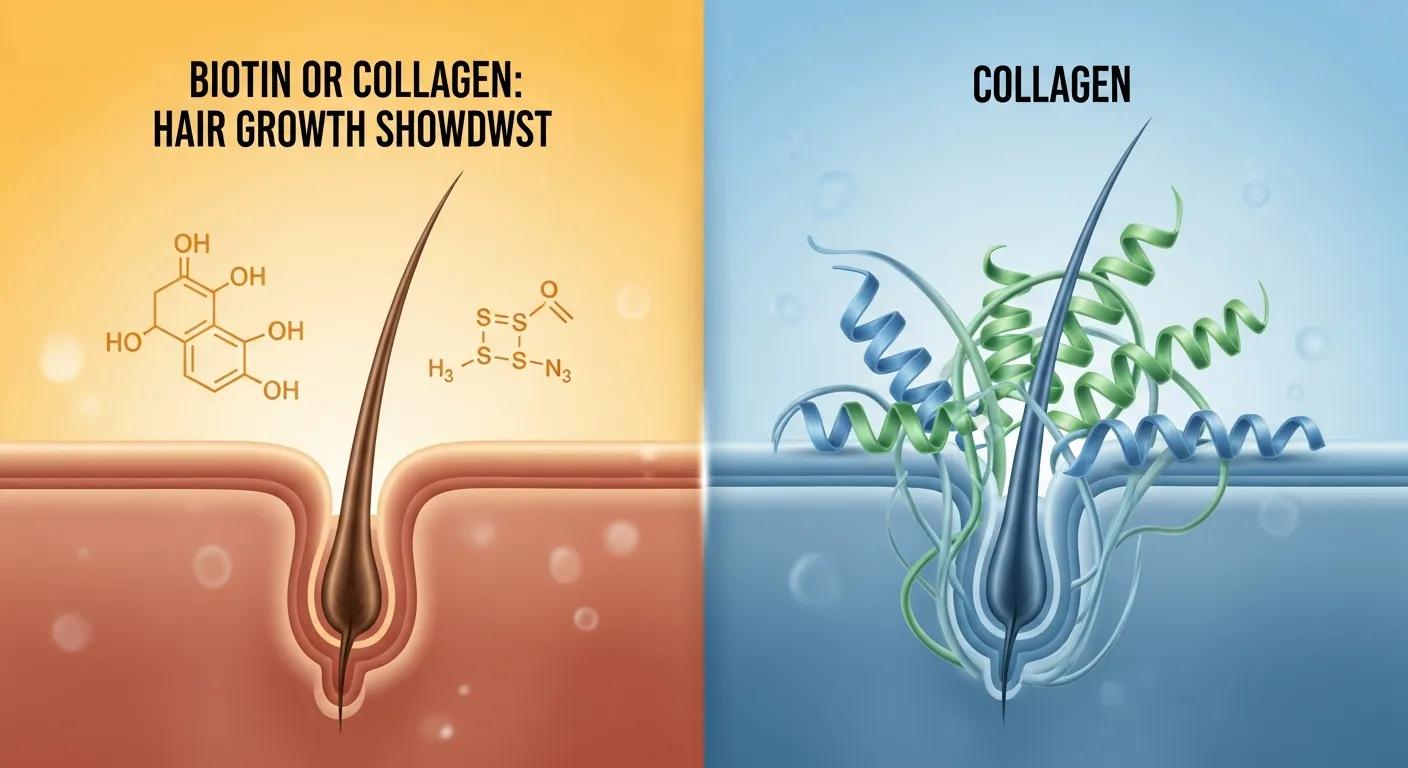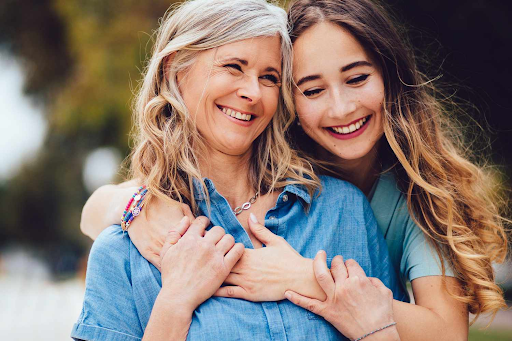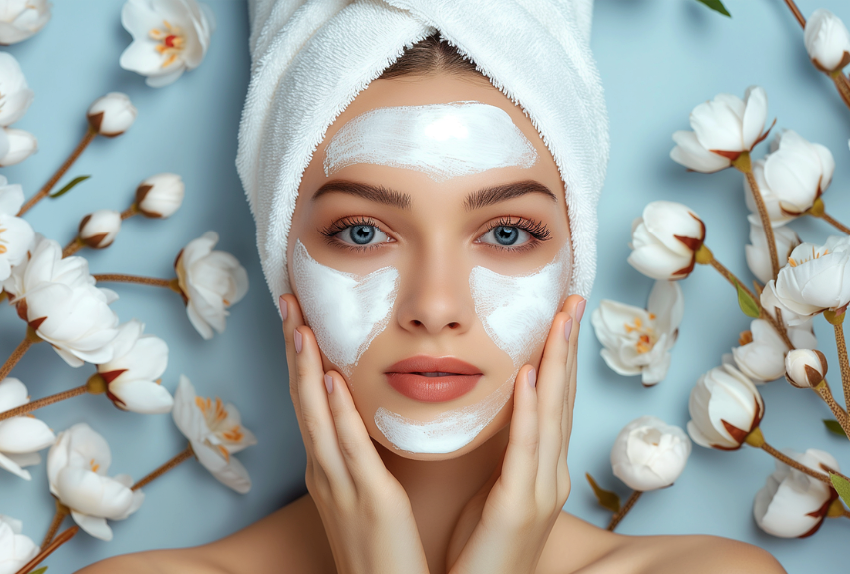Menopause Itchy Scalp & Hair Loss: Causes & Remedies to Try
BY TRYBELLO
Aug 4, 2025

Key Takeaways
- Menopause triggers hormonal changes that can lead to an itchy scalp and hair thinning for some women.
- Declining estrogen levels affect oil production in your scalp, leading to dryness, irritation, and potential hair loss.
- Natural remedies like rosemary oil and tea tree solutions can provide relief without harsh chemicals.
- Dietary changes that include omega-3 fatty acids and collagen-rich foods can support scalp health from within.
- Trybello's Hair Helper Spray is a comprehensive solution specifically formulated for hair challenges, combining natural ingredients like castor oil, biotin, and caffeine to promote thicker, fuller hair growth with a 120-day guarantee.
Hormonal Hair Havoc
When menopause begins, your body dramatically reduces the production of estrogen and progesterone. These hormones also play crucial roles in your skin and hair health. The hormonal rollercoaster affects your hair's growth cycle, often leading to thinner strands and a more sensitive scalp.
The hormonal changes during menopause can also trigger increased stress levels, which creates a frustrating cycle. Stress itself is a common cause of hair loss, so when you're already dealing with hormone-induced hair changes, added stress can make everything worse. That's why any effective approach needs to address both the physical symptoms and the emotional impact they have.
“Doctor-Approved Natural Spray Rapidly Boosts Growth & Thickness.
Why 100,000+ Women Are Switching to The TryBello All-Natural Solution!"
Join over 100,000 happy customers who’ve transformed their hair with our natural, doctor-formulated spray—rated 4.8/5 by more than 40,000 real users.
Proven Natural Ingredients
- • Caffeine Extract – Naturally blocks DHT and boosts blood flow to hair follicles
- • Biotin – Absorbs directly through the scalp for maximum results—no pills needed
- • Castor Oil – Soothes inflammation and locks in deep, lasting moisture
- • Rice Water Extract – Packed with proteins and minerals to strengthen hair and reduce shedding
Get Visible Results in 12 Weeks
- • Up to 45% increase in hair thickness
- • Reduces shedding and unclogs hair-draining nightmares
- • Supports regrowth in thinning areas
- • Leaves hair soft, shiny, and full of life
Ironclad 120-Day Growth Guarantee
No results after 4 months? Get 100% of your money back—no questions asked.


★★★★★
I started using this twice a day because I noticed my hairline receding. Didn’t pay attention to track results, now my stylist told me my hair has grown a lot since my last root touch up. I'm impressed! - Bailey

Why Your Scalp Itches

That persistent itch is your scalp's way of telling you something's changed. (Image credit: chokja – Istock)
Estrogen Decline
As estrogen levels plummet during menopause, one of the most noticeable side effects is dry, itchy skin, including the skin on your scalp. Estrogen helps maintain skin moisture and elasticity, so when levels drop, your scalp becomes more vulnerable to irritation.
This hormone also helps regulate inflammation in the body, which means lower levels can lead to increased inflammatory responses in your scalp.
Oil Gland Changes
During menopause, your oil glands undergo significant changes. They often shrink in size and reduce production, leaving your scalp without its natural moisturizing system.
This reduction in sebum (your body's natural oil) means your scalp and hair become drier, more brittle, and increasingly prone to irritation.
Inflammation Factors
Hormonal fluctuations during menopause can trigger inflammatory responses in your body, including your scalp. This inflammation may cause redness, irritation, and intense itching.
For some women, this can develop into conditions like seborrheic dermatitis, which causes red, scaly patches on the scalp.
Natural Remedies to Try
1. Rosemary Oil
Rosemary oil stands out as one of the most effective natural remedies for menopausal hair concerns. Research shows rosemary oil can be as effective as minoxidil (the active ingredient in many hair regrowth products) for encouraging hair growth, but without the side effects. It works by improving circulation to the scalp, which delivers more nutrients to your hair follicles.
To use rosemary oil, mix 10–15 drops with a tablespoon of carrier oil like jojoba or coconut oil. Massage this mixture into your scalp, focusing on areas where you experience the most itching or thinning. Leave it on for at least 30 minutes before washing with a gentle shampoo. For best results, apply this treatment 2–3 times weekly.
2. Tea Tree Solutions
Tea tree oil offers powerful antimicrobial and anti-inflammatory properties that can soothe an itchy, irritated scalp. It's particularly effective if your menopausal scalp itchiness is accompanied by dandruff or scalp flaking. The oil helps balance scalp pH and reduce the presence of fungus that can contribute to scalp irritation.
Create a simple tea tree treatment by adding 5–10 drops of tea tree essential oil to two tablespoons of a carrier oil like almond oil. Apply this directly to your scalp using a cotton ball, focusing on particularly itchy areas. Leave it on for 15–20 minutes before washing out.
3. Aloe Vera Applications

Aloe vera is a miracle worker for dry, irritated scalps during menopause.
Aloe vera contains enzymes that promote healthy hair growth while its high water content provides deep hydration to a parched scalp. Its anti-inflammatory properties also help reduce the redness and irritation that often accompany menopausal scalp issues.
For best results, apply pure aloe vera gel directly to your scalp, massage gently, and leave it on for 30 minutes before rinsing thoroughly with lukewarm water.
Diet Changes

What you eat plays a crucial role in managing menopausal hair and scalp issues. Think of these diet changes as nurturing your hair from the inside out.
Omega-3 Benefits
Omega-3 fatty acids are essential for maintaining scalp health during menopause. These healthy fats help reduce inflammation throughout the body, including the scalp, which can alleviate itchiness and irritation. They also support the scalp's natural oil production, helping to combat the dryness that often occurs as estrogen levels decline.
Incorporate fatty fish like salmon, mackerel, and sardines into your diet at least twice a week. If you follow a plant-based diet, flaxseeds, chia seeds, and walnuts are excellent alternative sources of omega-3s.
Collagen-Rich Foods
Collagen is the most abundant protein in your body and a major component of your skin, including your scalp. During menopause, collagen production naturally declines, contributing to skin thinning and reduced elasticity. This affects your scalp's resilience and can impact hair follicle health.
Boost your body's collagen production by consuming protein-rich foods like chicken, fish, eggs, and bone broth. Vitamin C is also essential for collagen synthesis, so include plenty of citrus fruits, berries, and bell peppers in your diet.
Gentle Hair Care
Silicone-Free Hair Products
Many conventional hair products contain silicones that create the illusion of healthy hair by coating the strands. However, these silicones can build up on the scalp, potentially blocking follicles and contributing to irritation.
During menopause, it's best to switch to natural formulations that clean and nourish without creating buildup. Look for products labeled "natural" to help boost scalp health and improve hair growth.
Scalp Massage Techniques
Regular scalp massage stimulates blood circulation, bringing oxygen and nutrients to hair follicles while helping to distribute natural oils. This simple practice can significantly improve scalp health and encourage hair growth during menopause.
Take 5 minutes daily to massage your scalp using gentle circular motions with your fingertips, never your nails, which can cause irritation.
Your Journey to Healthier Hair Starts with Trybello
At Trybello, we understand that menopausal hair loss and scalp irritation are deeply personal challenges that can significantly impact your confidence and daily comfort.

Our Hair Helper Spray combines biotin, castor oil, and caffeine for a full, natural hair treatment.
Our Bello Hair Helper Spray represents a breakthrough approach to menopausal hair care, combining the most effective natural ingredients with cutting-edge formulation science. The carefully selected blend of castor oil enhances blood circulation to reactivate dormant follicles, while biotin delivers the essential nutrients your hair needs to rebuild strength and thickness.
Caffeine works at the cellular level to extend the growth phase of your hair cycle, directly counteracting the hormonal disruption that shortens this crucial period during menopause. Simply spray 1–2 pumps to affected areas once or twice daily, massage gently, and let the hormone-free formula work its magic, no complicated routines or harsh chemicals required.
Your hair's transformation begins with a single decision to prioritize your wellbeing and trust in solutions designed specifically for your unique needs.
Frequently Asked Questions (FAQs)
Trending Topics
See our latests posts #TRYBELLO












